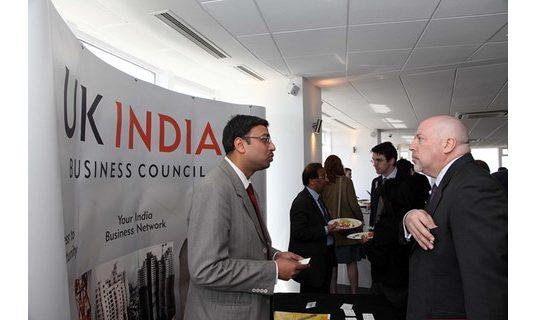
Speakers: Nadia Sood – Impact Investment Partners; Vinay Nair – Acumen Fund; Alison Bukhari – Dasra moderated by Priya Shah, Asia House.
Key discussion points:
The panellists extolled the virtues of patient capital – defined as the use of philanthropic funding as capital to back social entrepreneurs operating in market failure situations. Patient capital seeks to maximize social impact and to catalyze the creation of markets to combat poverty. Patient capital investors are willing to forgo an immediate return in anticipation of more substantial social and financial returns down the road.
The Acumen Fund uses this unique framework to approach social enterprise and address the ‘missing middle’ (leaving out the middle or affluent class) because this is the only way to reach the bottom of the pyramid. They deliberately don’t go for the low hanging fruit – instead they choose to invest in riskier, harder to reach companies operating in critical sectors.
In a similar fashion, Impact Investment Partners raise capital to provide financing for social businesses that are working to fill this ‘missing middle’ gap – in particular they invest in those companies that focus on the demographic earning $2- $10 a day which makes up 50% of the population and have very limited access to quality healthcare.
Social entrepreneurs have social passion, but lack commercial acumen so find it difficult to scale their social impact and this is where institutions like Dasra come in.
There is a real need to build an entire ecosystem to bring together the relevant stakeholders – ie. social entrepreneurs, philanthropists and social investors to meet existing demand. At the moment there are several more social investors than viable social businesses, so Dasra is working to strengthen and upskill these grassroots companies. Dasra was founded over 13 years ago by investment bankers to bring commercial expertise to the social sector and help social entrepreneurs access capital and skills while simultaneously enabling investors and philanthropists to meet these social entrepreneurs. They specialise in robust research and skills building for social business leaders and their teams to make these organisations ready for investor funding.
The current scenario in India is particularly challenging for budding social entrepreneurs because not only is India a difficult place to do business but also because there exist very few enabling entities for example:
Indian education institutions and business schools are only now starting to offer more social enterprise courses and early stage incubation centres but a lack of sensititvity to the social sector still persists and mentors and teachers themselves need to be trained properly to deliver these courses.
Social businesses need to be steered by a board of directors who bring a range of expertise to the table including legal, financial and social all of which is required to grow the business. Thus there is a major role for business schools and executive MBAs to train people to become board members to govern these organisations.
Law firms are only recently starting to take on pro bono work but these are few and far between and often hard to identify.
The regulatory environment needs to be radically reformed to cater to social entrepreneurs and trusts. It still has a long way to go but a major positive development is the new set of CSR laws that are being passed – it is hoped that these new policies will allow corporates to fit into this ecosystem and force budgets to be allocated to specific CSR issues.
These are small steps in the journey to transforming the way philanthropy is executed in India and making it more strategic and impactful.
Change is on the horizon:
Its time to change the mentality that its impossible to make money and do good. It is now evident that social business can make a profit while addressing social issues at the same time.
India as the hotbed of social innovation needs to lead this change.
The media and press can play a vital role by spreading the message about social entrepreneurship.
In addition to critical sectors, new sectors such as tourism, handicrafts forestry and fisheries should be brought into the social enterprise domain.
Need to attract more and more people to take on subordinate roles to support the entrepreneur/leader and thus enhance the core team of a social business.
The next generation of self made entrepreneurs exposed to global trends will impact strategic philanthropy and the heirs to major industrial houses will influence their parents to undertake more strategic philanthropy moving forward.
British SMEs can get involved in social enterprise in India by transferring their skills and knowledge and working with Indians to develop a unique hybrid model tailored to suit the local environment. They don’t need to reinvent the wheel – instead they should leverage existing structures in this ecosystem and make the most of this valuable and lucrative opportunity.
